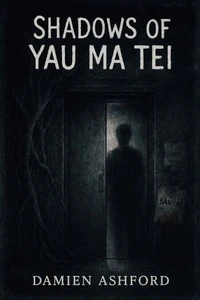When the Rift opens, the city learns to speak in names. Ronan keeps other people's memories in a battered ledger and a stairwell of clay discs. He is small-town practical, not a prophet-until the Rift's resonance begins to bend more than buildings. Strange glyphs and municipal compasses turn the city's attention into a weapon: donors and private labs attempt to collectivize memory, engineers turn rituals into code, and a shadowy market forms where truth can be bought.
As compasses are stolen, reconditioned and networked, Ronan and a ragged band of makers and witnesses-Isolde the Weaver, Arden the filmmaker, L the guard, R the scout, Thaddeus the uneasy courier, and a stoic Warrior with a scarred past-forge a fragile defense: wax cylinders, witness chords, and analog rituals that make memory communal and costly to monetize. They slow the donors by making remembrance a public practice, teaching neighborhoods to sing, stamp, and record the names they cherish.
But when the donors begin to model human ritual into a synthetic hinge-an algorithmic Simulacrum that could harmonize compasses without a single living node-the stakes change. Law, protest and sabotage buy time, but the real choice is unbearable: let private interests build a global architecture of purchased truth, or authorize a last-resort, public, witnessed act that will irreversibly alter a living node to prevent global harmonization forever.
Warlord of the Rift is a tense, compassionate novel about memory as a public good, about the ethics of sacrifice, and about what communities will ask of one another when the value of truth becomes a commodity. Equal parts political fable and intimate character drama, it traces a slow-burning struggle among grassroots ritualists, legal strategists, and corporate engineers-until one man, the keeper of names, steps forward to bind the city's future in a single, irrevocable choice.
Perfect for readers of literary speculative fiction and moral thrillers, this novel explores surveillance, privatization of knowledge, and the stubborn craft of keeping memory alive-by hand, in clay, by song, and in witness. If you like character-driven dystopia with a spare, tactile imagination and an ethical core that refuses easy answers, Warlord of the Rift will stay with you long after the last name is read.
When the Rift opens, the city learns to speak in names. Ronan keeps other people's memories in a battered ledger and a stairwell of clay discs. He is small-town practical, not a prophet-until the Rift's resonance begins to bend more than buildings. Strange glyphs and municipal compasses turn the city's attention into a weapon: donors and private labs attempt to collectivize memory, engineers turn rituals into code, and a shadowy market forms where truth can be bought.
As compasses are stolen, reconditioned and networked, Ronan and a ragged band of makers and witnesses-Isolde the Weaver, Arden the filmmaker, L the guard, R the scout, Thaddeus the uneasy courier, and a stoic Warrior with a scarred past-forge a fragile defense: wax cylinders, witness chords, and analog rituals that make memory communal and costly to monetize. They slow the donors by making remembrance a public practice, teaching neighborhoods to sing, stamp, and record the names they cherish.
But when the donors begin to model human ritual into a synthetic hinge-an algorithmic Simulacrum that could harmonize compasses without a single living node-the stakes change. Law, protest and sabotage buy time, but the real choice is unbearable: let private interests build a global architecture of purchased truth, or authorize a last-resort, public, witnessed act that will irreversibly alter a living node to prevent global harmonization forever.
Warlord of the Rift is a tense, compassionate novel about memory as a public good, about the ethics of sacrifice, and about what communities will ask of one another when the value of truth becomes a commodity. Equal parts political fable and intimate character drama, it traces a slow-burning struggle among grassroots ritualists, legal strategists, and corporate engineers-until one man, the keeper of names, steps forward to bind the city's future in a single, irrevocable choice.
Perfect for readers of literary speculative fiction and moral thrillers, this novel explores surveillance, privatization of knowledge, and the stubborn craft of keeping memory alive-by hand, in clay, by song, and in witness. If you like character-driven dystopia with a spare, tactile imagination and an ethical core that refuses easy answers, Warlord of the Rift will stay with you long after the last name is read.

 , qui est-ce ?
, qui est-ce ?